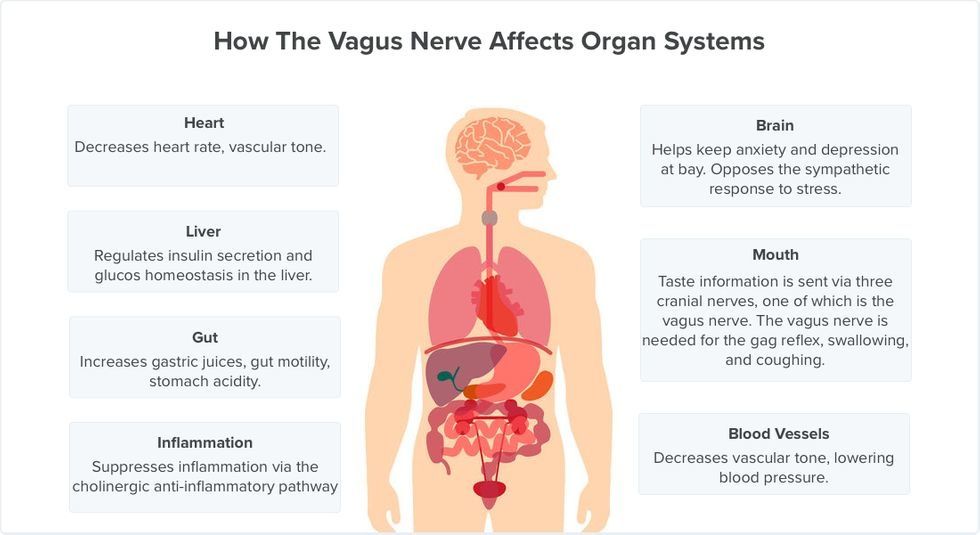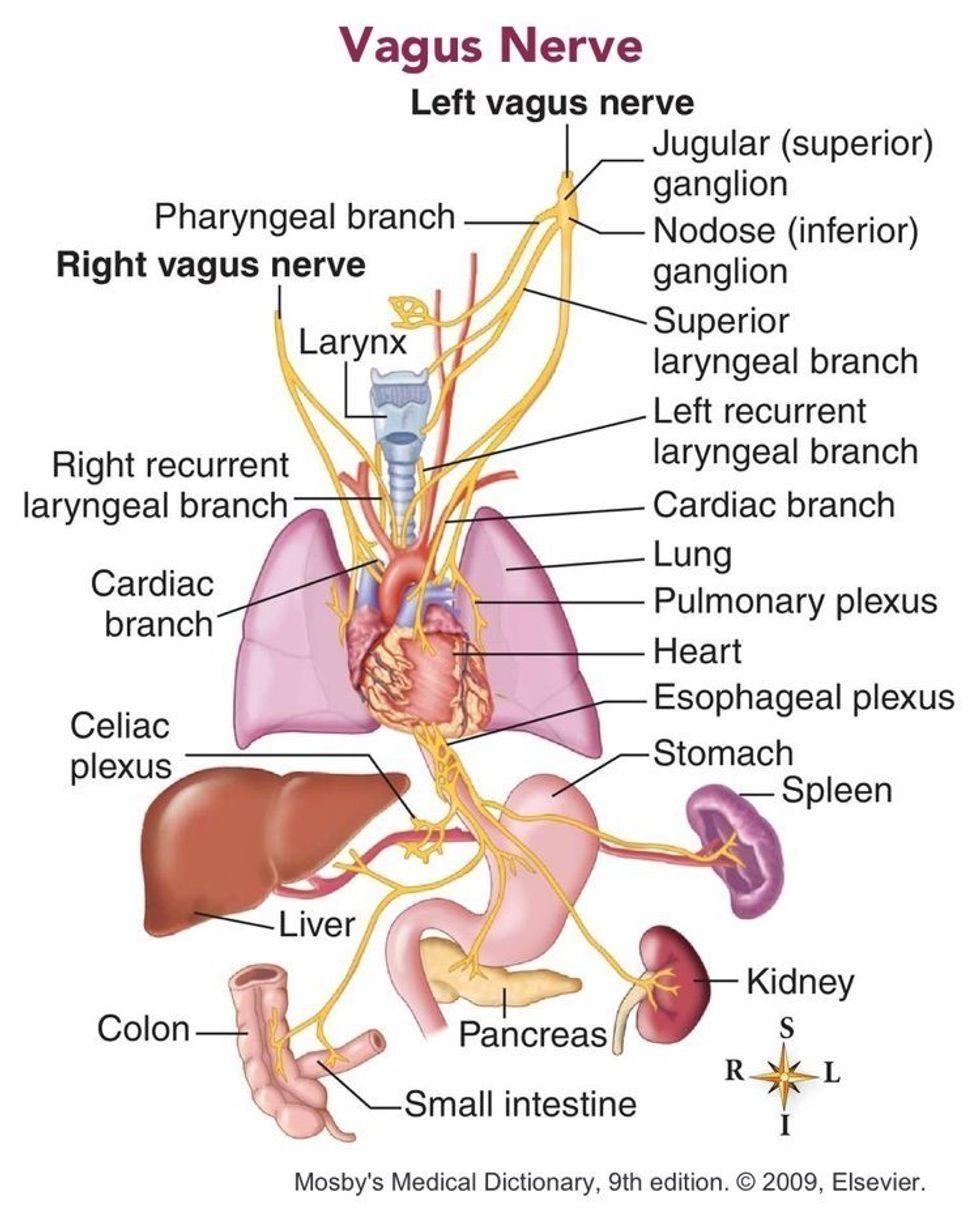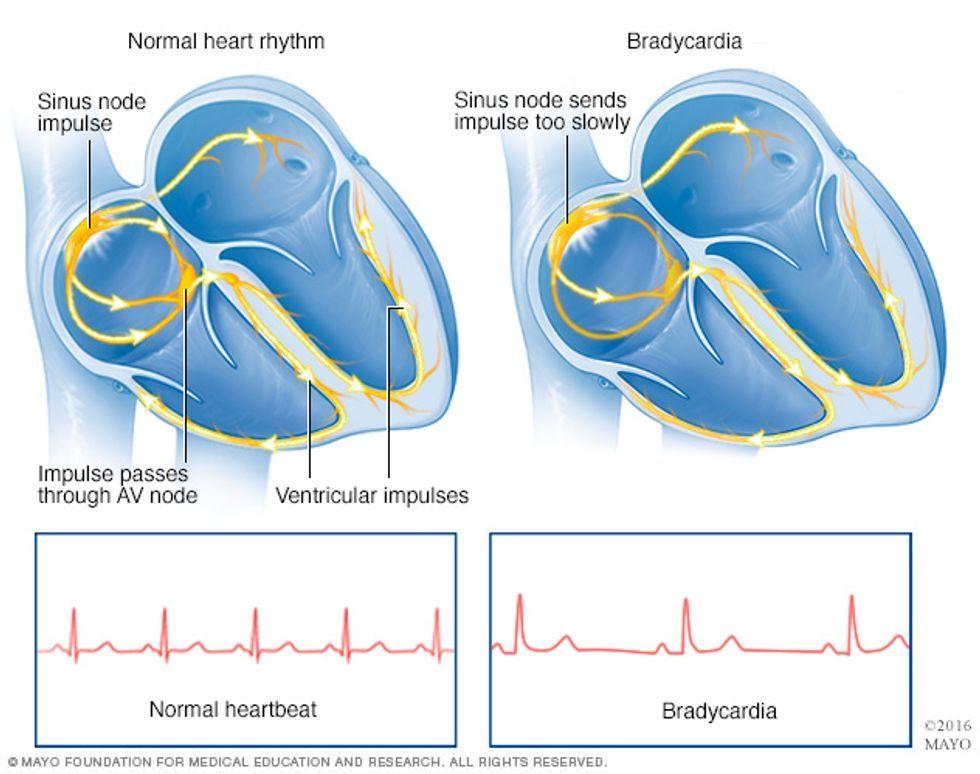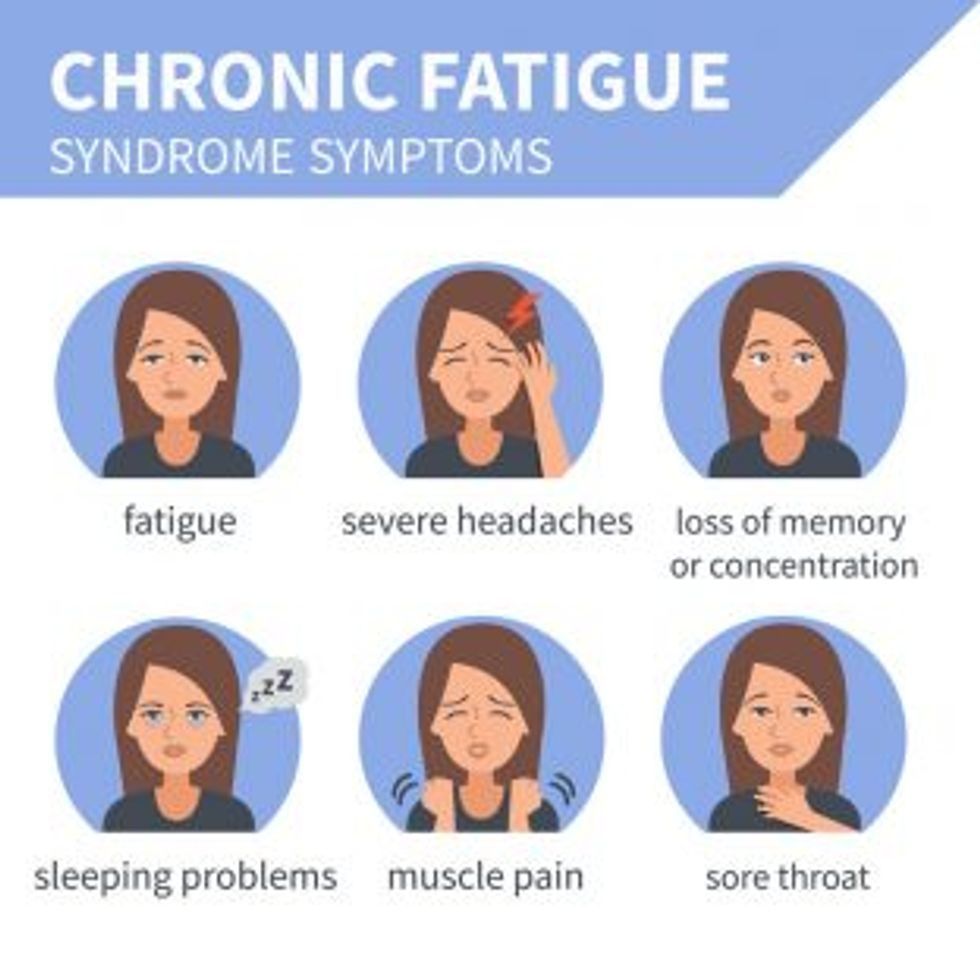Not many people really know what the vagus nerve is so first, let me explain that. The vagus nerve is the longest cranial nerve in the body that regulates the gut and also affects the cardiovascular, immune, endocrine and respiratory systems. That means it's a pretty major nerve in the human body. So when that nerve is dysfunctional, you can imagine it can have some pretty ridiculous side effects.
This past autumn, I figured out that my vagus nerve is, somehow, dysfunctional. And it turns out that a lot of people have a dysfunctional vagus nerve. When you struggle with vagus nerve dysfunction, you can be perfectly healthy for a long time, catch a cold or hit a wall, and then your body will take months to recover. I got so sick that I didn't have the energy to even get out of bed for days and probably would have withered away if my mom didn't bring me food.
Living with vagus nerve dysfunction is something that you have to learn to live with because there is no cure. So if you have a friend with a dysfunction vagus nerve, please try and understand them and read through these common symptoms that come with it.
1. Chronic nausea

Unfortunately, this means there isn't a lot that seems appetizing to eat.
2. Weight loss

Due to not wanting to eat from nausea, you can lose significant weight. At my worst, I unintentionally lost 15 lbs. in about three weeks.
3. Weight gain
Most likely due to chronic fatigue, depression, and anxiety.
4. Bradycardia and tachycardia

Otherwise known as decreased heart rate and increased heart rate, respectfully. This can make simple things like walking or standing for long periods of time difficult.
5. IBS
Constant stomach pains and nausea generally means constantly feeling uncomfortable.
6. Depression
Not only just because it's connected to your brain, but always feeling down and sick definitely takes a toll on your mental health.
7. Anxiety
I still sometimes get panic attacks at the thought of leaving the house because I might have a terrible dizzy spell in public again.
8. Chronic inflammation
It just sucks.
9. Chronic fatigue

There's a difference between feeling tired all the time because you're a college student and feeling tired all the time because your body is sick.
10. Heartburn

It doesn't even matter how in (or out) of shape you are.
11. Dizziness/fainting
We try our best to not stand up too fast because that'll make it worse.
While there isn't a cure for vagus nerve dysfunction, there are a lot of things we can do to manage it. Some of us take medications for our mental health and nausea. Yoga is always great for increasing muscle function. And a massive intake of salt and water is vital (we also drink a lot of Gatorade). But that doesn't mean that we don't have bad days.
So try your best to be there for your friends with dysfunctional vagus nerves. Instead of always suggesting to go out, maybe just ask if you can bring over a lot of Gatorade and salty snacks and binge Netflix. It will be greatly appreciated.


















